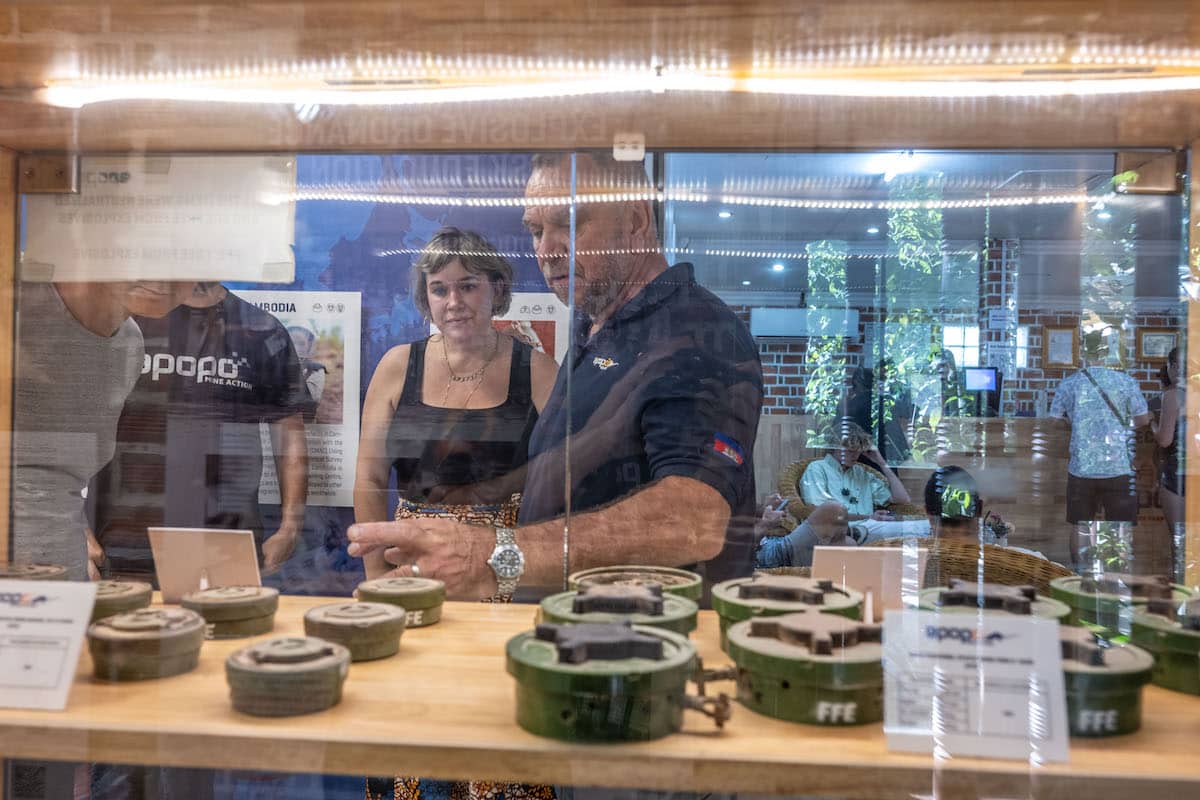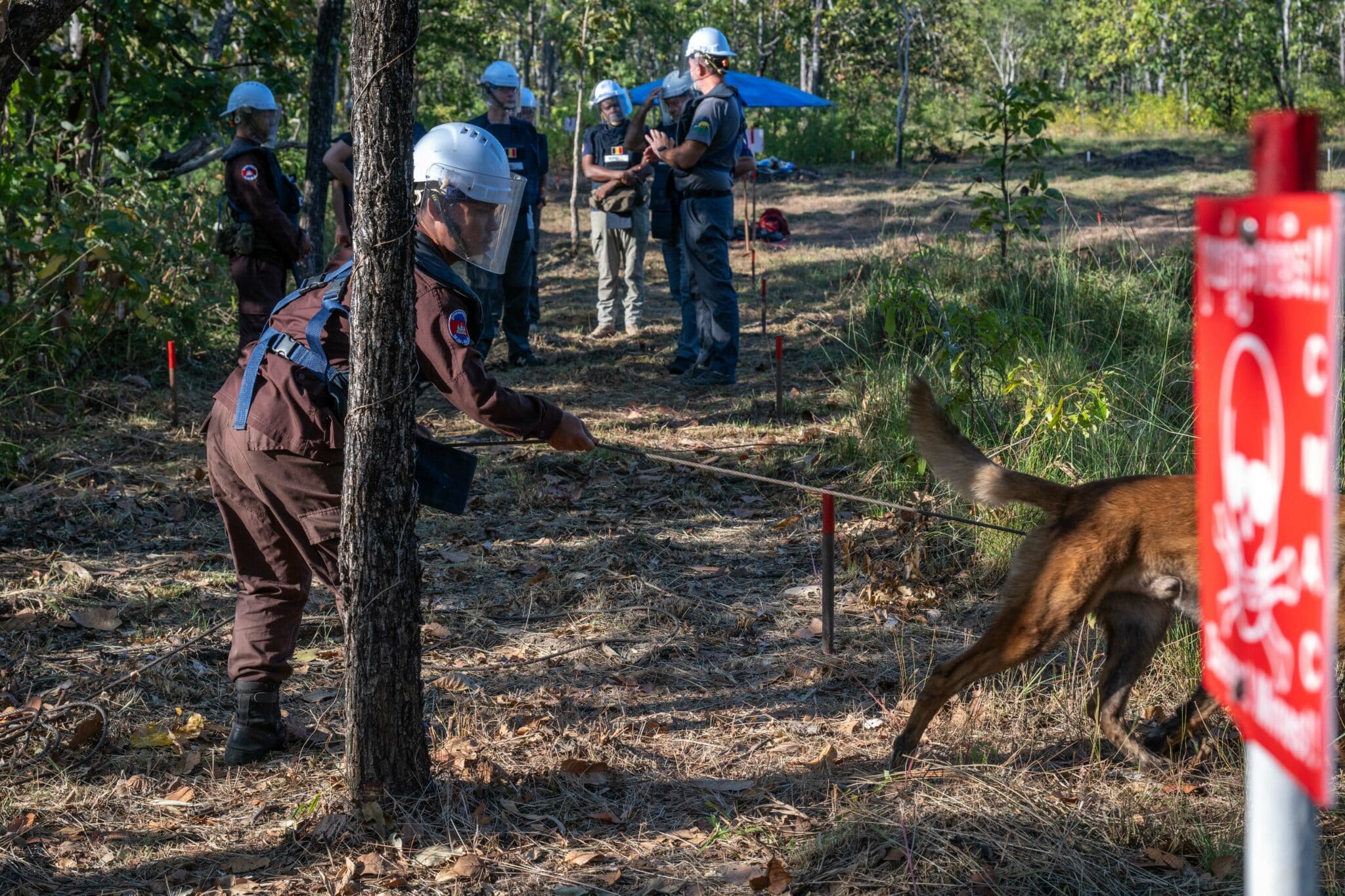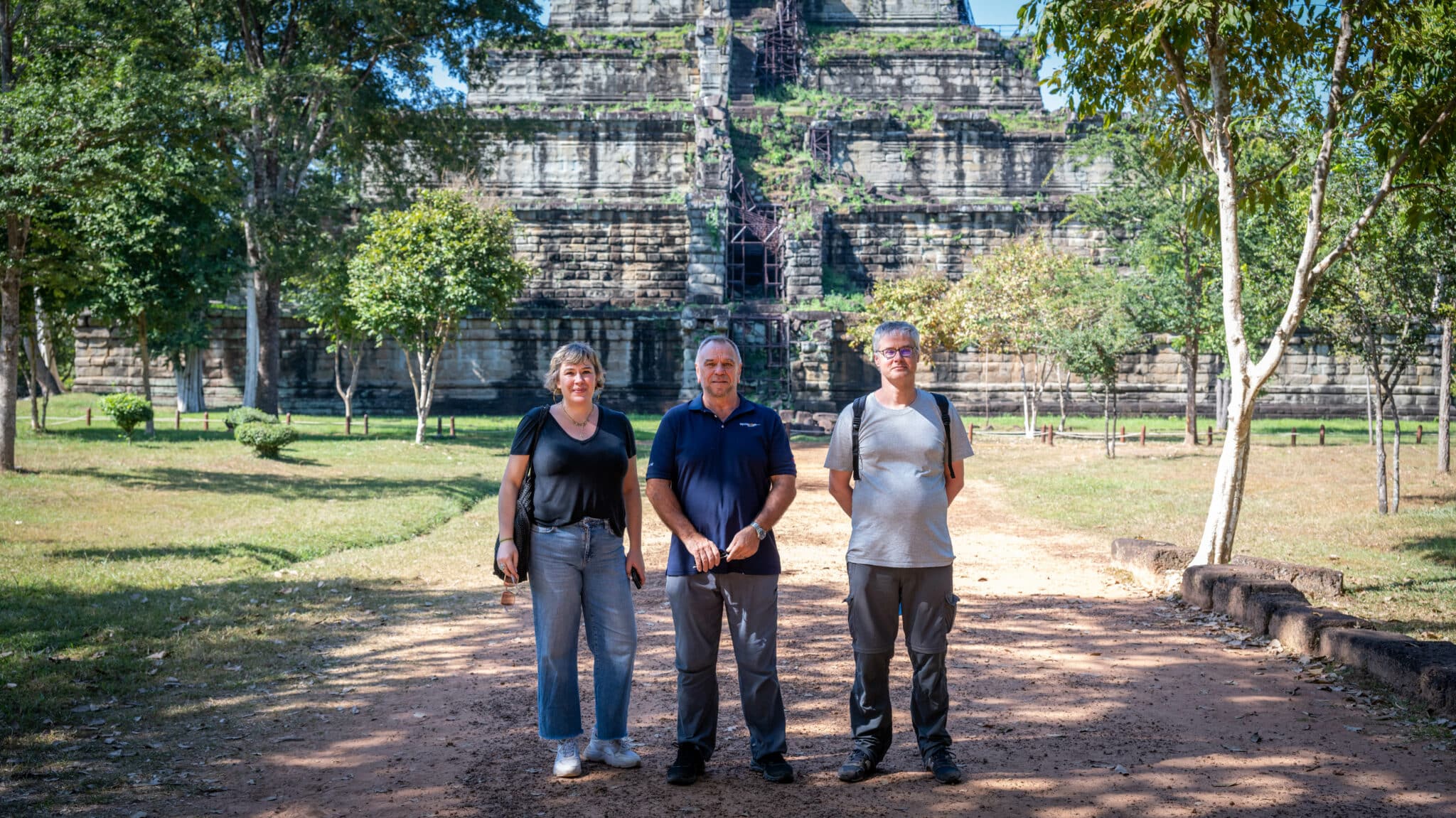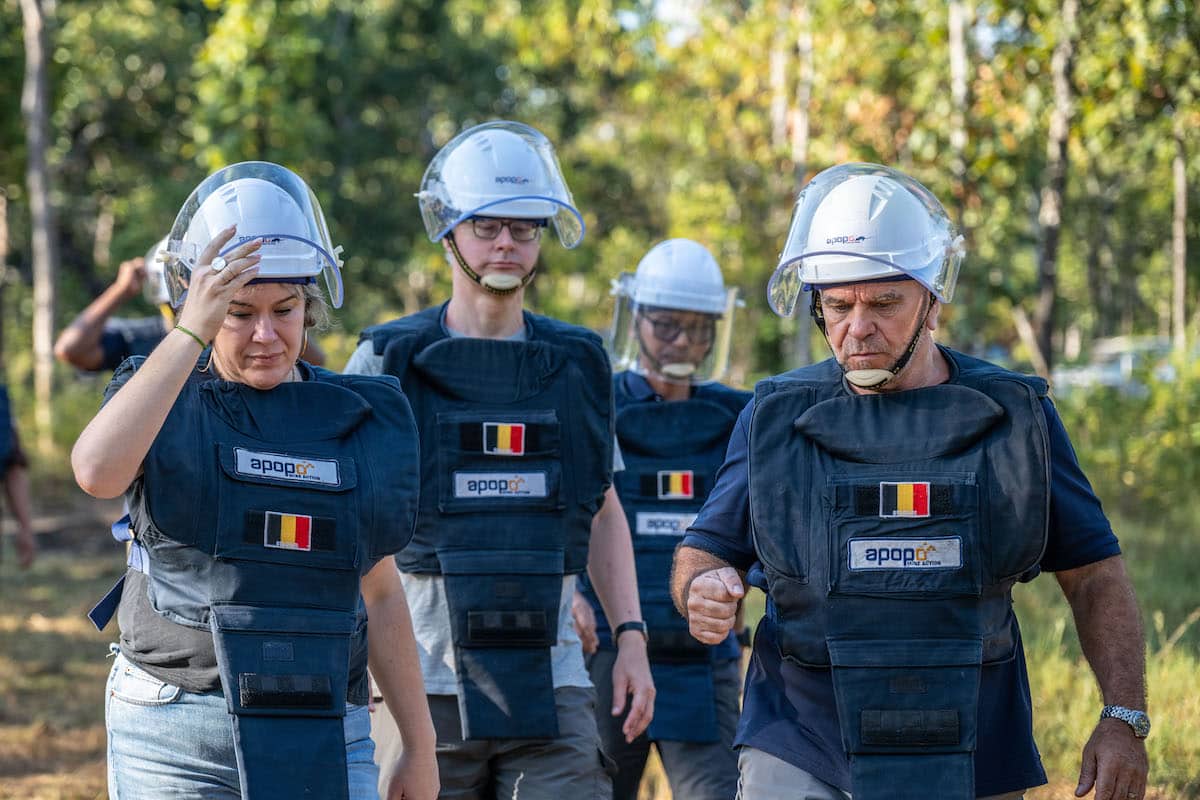During the 5th Review Conference (RevCon) of the Anti-Personnel Mine Ban Convention, held in Siem Reap, Cambodia in November 2024, APOPO hosted a delegation from the Belgian government. The visit showcased APOPO’s progress in landmine clearance, demonstrated the impact of Belgium’s long-standing support, and provided a platform to discuss the ongoing challenges of mine contamination. APOPO’s Mine Action headquarters and Visitor Center, located in Siem Reap, served as the delegation’s base for exploring our work in the region.
Showcasing APOPO’s Work at the Visitor Center

The delegation began their visit at APOPO’s Visitor Center, which provides insights into APOPO’s innovative methods for detecting landmines and presents APOPO’s mine action projects to the public. There, the delegation was introduced to APOPO’s mine detection rats (MDRs) and Technical Survey Dogs (TSDs), whose ability to identify mine-contaminated areas with speed and accuracy has become a cornerstone of our operations. Demonstrations highlighted how the animals help prioritize clearance efforts, saving time and resources.
The center also offered a broader perspective on how APOPO integrates demining with community development. Belgium’s support through the Directorate-General for Development Cooperation and Humanitarian Aid (DGD) has been pivotal in advancing these efforts, funding operational costs, training programs, and the expansion of APOPO’s demining capacity.
Observing Field Operations in Mine-Affected Areas

The delegation traveled to an active minefield in Preah Vihear, where APOPO’s TSDs demonstrated their ability to locate landmine contamination. This visit allowed the delegation to see the tangible results of Belgium’s support in action. By identifying dangerous areas efficiently, the TSDs enable clearance teams to focus their efforts where they are most needed, making the process more effective and reducing risks for field teams.
Local staff shared insights into their work, which is conducted in some of Cambodia’s most affected regions. The delegation also learned about the broader implications of landmine clearance, such as enabling safe access to farmland, infrastructure, and essential services. Belgium’s contributions have directly supported these activities, helping to reduce clearance costs and enhance the efficiency of APOPO’s work.
Exploring the Koh Ker Project

The delegation’s itinerary continued to Koh Ker, a recently listed UNESCO World Heritage Site and the former capital of the Khmer Empire in the 10th century. Here, APOPO’s Technical Survey Dog (TSD) teams, in partnership with the Cambodian Mine Action Center (CMAC), are actively involved in demining efforts. This initiative, supported by the Belgian government, is critical for ensuring the safety of local communities and future tourists.
The Koh Ker region, spanning 400 hectares, has long struggled with the aftermath of armed conflict, leaving it heavily contaminated with landmines. This ongoing threat not only endangers the safety of residents but also hinders local agriculture. The three neighboring villages rely on rice cultivation, rain-fed crops, and livestock for their livelihoods.
APOPO’s partnership with the Belgian government has been important in addressing these challenges across Cambodian provinces. Together, they have facilitated the safe development of agricultural land and the preservation of cultural heritage sites, such as Koh Ker and the Preah Vihear Temples. These efforts not only restore safety but also pave the way for sustainable growth and tourism in the region.
A History of Belgium’s Support for APOPO
Belgium has played an essential role in APOPO’s growth and impact. Founded as a research project at the University of Antwerp, APOPO received critical early support from the Belgian government to develop its innovative approach to humanitarian demining. In Mozambique, Belgian funding was instrumental in enabling APOPO to deploy its mine detection rats, helping the country achieve mine-free status in 2015. Additionally, funding from the Flanders government was crucial for supporting APOPO’s tuberculosis detection program in Mozambique.
In Angola, Belgium has supported APOPO’s work since 2012, including a significant commitment in 2020 that allowed APOPO to scale its operations and improve land release rates. The support also extends to APOPO’s tuberculosis detection programs in Tanzania, demonstrating Belgium’s commitment to addressing global challenges through innovative solutions.
In Cambodia, Belgium has funded APOPO’s demining efforts through the DGD, enabling large-scale operations in regions like Preah Vihear, where landmine contamination remains an obstacle to community safety and development. This support has allowed APOPO to expand its Technical Survey Dog capacity and integrate demining with sustainable development initiatives.
Reflecting on the Visit
The visit by the Belgian delegation during the 5th RevCon was an opportunity to reflect on the shared achievements of APOPO and Belgium. Christophe Cox, CEO of APOPO, expressed gratitude for the collaboration: “Belgium’s support has been instrumental in helping us address the challenges of landmine contamination and its impact on communities. Their commitment has enabled us to save lives and create opportunities for affected regions.”
The visit also reinforced the importance of continuing these efforts, as landmine contamination remains a significant challenge in Cambodia and other countries. APOPO is committed to building on this partnership to expand its impact and ensure that communities can live safely and productively on cleared land.
Continuing the Work
Despite significant progress, the work of landmine clearance in Cambodia is far from complete. APOPO remains dedicated to clearing land, protecting lives, and supporting sustainable development in affected communities. Belgium’s contributions have been vital in enabling this progress, and the visit during the 5th RevCon reaffirmed the value of this partnership.
APOPO Mine Action Cambodia is deeply grateful to the Belgian Government
whose support has been a pillar in the success of our landmine clearance program.


